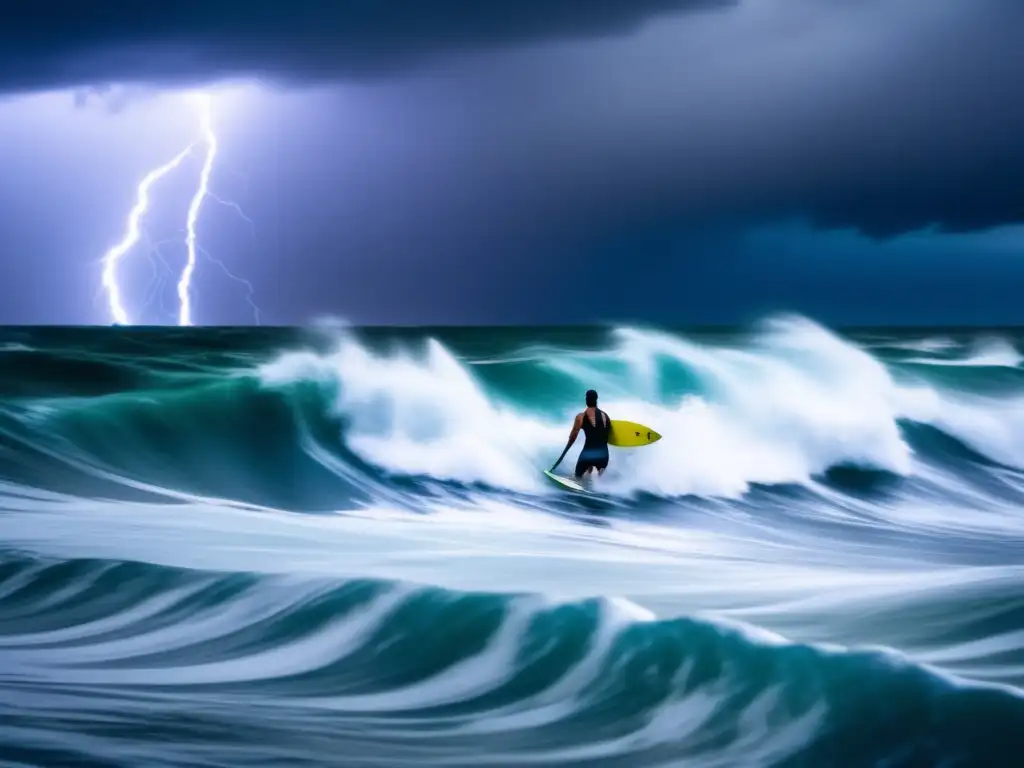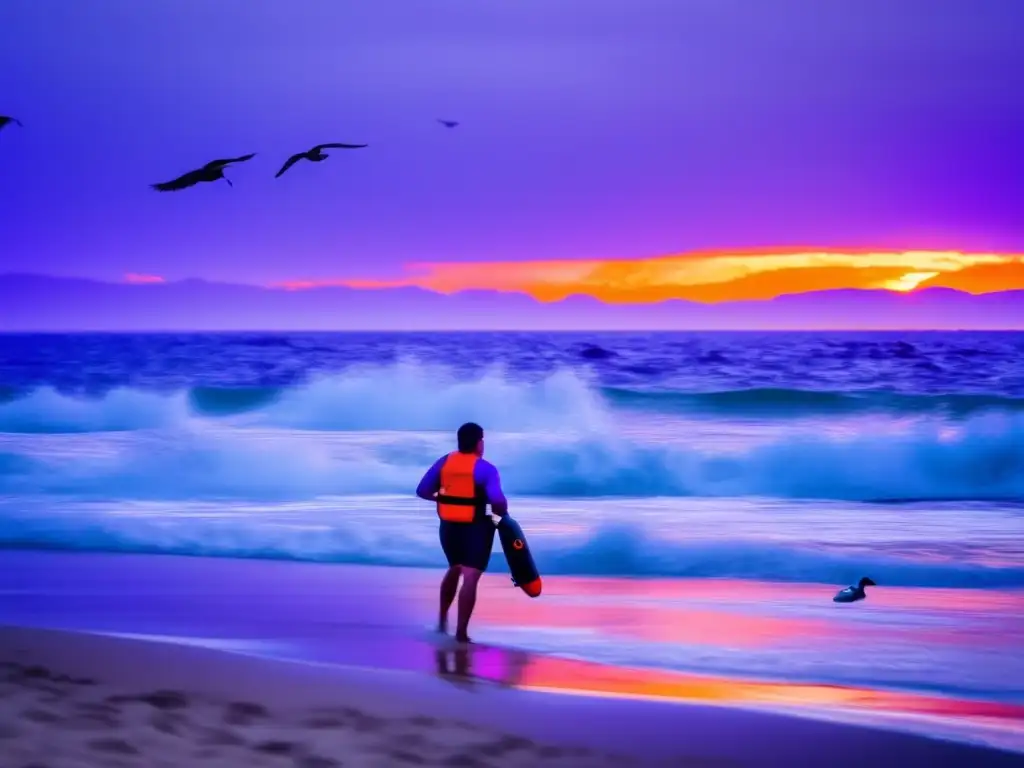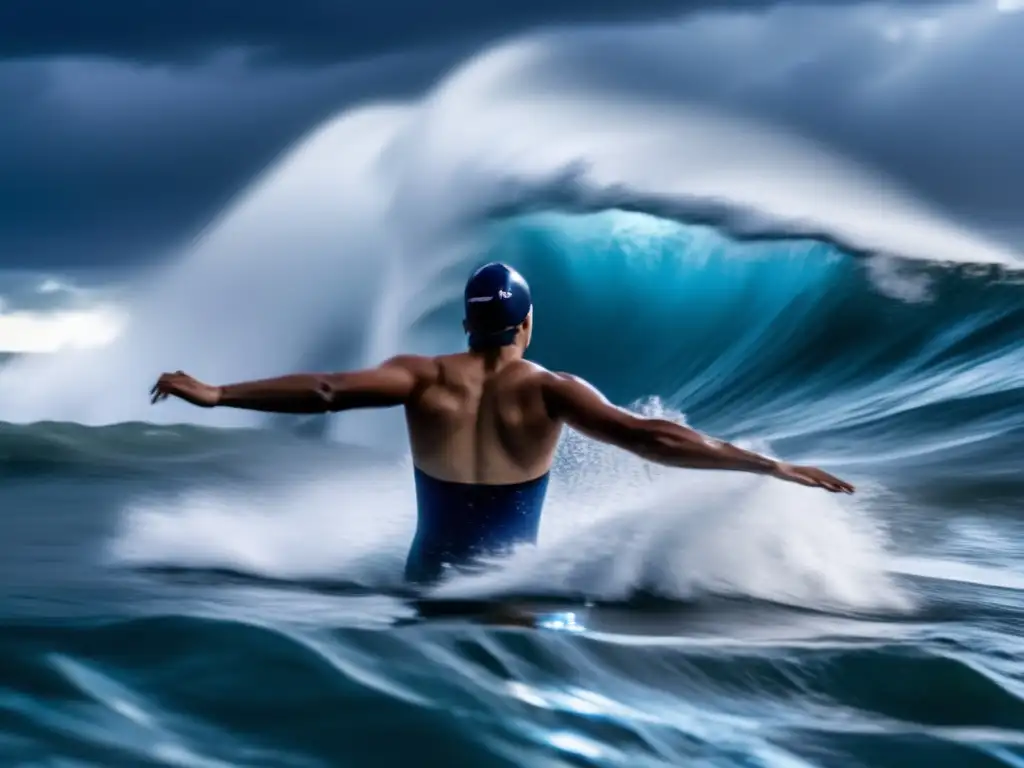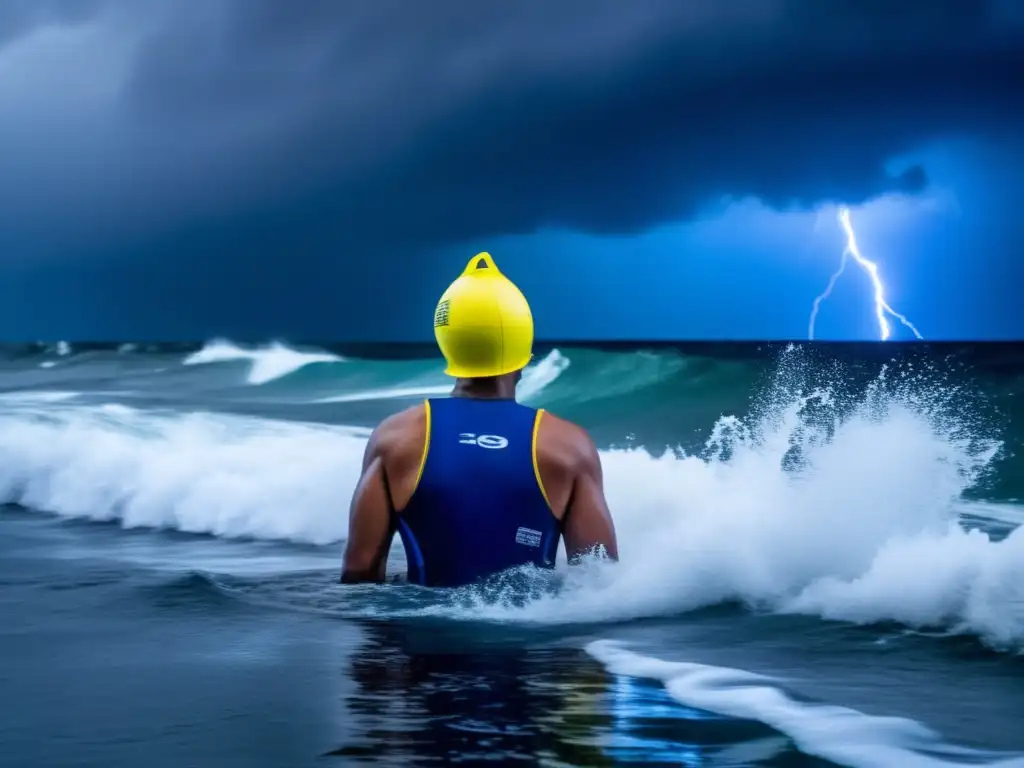Staying Afloat: Tips For Swimmers During A Hurricane

Staying Afloat: Tips for Swimmers During a Hurricane
Introduction
As hurricanes can cause massive flooding, it is crucial to understand how to stay safe in the water during such weather conditions, especially if you are a swimmer. Hurricanes are known to bring powerful waves and unpredictable currents that can easily drag swimmers away from the shore. Hence, this article focuses on providing valuable tips to ensure safety for swimmers during a hurricane.
Understand the Weather Conditions

Check the Weather Forecast
Before you hit the waters, it is essential to check the weather forecast ahead of time to stay informed about any potential storms or hurricanes. Websites like National Hurricane Center, Weather Underground, and AccuWeather can provide you with up-to-date information about the weather conditions in your area.
Observe the Waves and Currents
While swimming during a hurricane, it is essential to keep an eye on the waves and currents. The winds and storms may create strong currents that can quickly carry swimmers out to sea. Hence, it is advisable to remain close to the shore and swim parallel to it instead of swimming towards or away from it.
Avoid swimming alone, and always have someone onshore monitoring your movements. If you notice the waves becoming too rough or see debris washing ashore, it is better to get out of the water immediately and wait for calmer weather conditions.
Learn to Identify Rip Currents
During hurricanes, rip currents can form, which are strong and dangerous underwater currents that can pull swimmers away from the shore. Signs of rip currents include a channel of choppy or murky water, a change in water color, or a break in the incoming waves. If you notice any of these signs, it is safer to avoid swimming in that area.
Be Prepared for Any Emergencies

Know Basic First Aid Techniques
While swimming during a hurricane, swimmers must know basic first aid techniques like CPR and how to identify signs of drowning. It is also wise to keep a first-aid kit in your car, so you can administer basic care in case of any injuries.
Wear Appropriate Swimwear
Strong winds and currents during hurricanes can easily cause clothing to come loose, resulting in accidents. Hence, it is essential to wear appropriate swimwear that fits snugly and will not come off due to the strong winds. Also, wearing bright colors can help rescuers spot you easily in case of emergencies.
Carry Necessary Equipment
Swimmers must always carry necessary equipment, such as goggles, nose clips, and earplugs, to protect their eyes, nose, and ears from the harsh weather conditions. Additionally, they must also bring along flotation devices like life jackets or buoyancy belts as a precautionary measure.
Follow Safety Protocols and Guidelines

Pay Attention to Warning Flags and Signs
Most beaches have warning flags and signs to alert swimmers about potential hazards in the water. During hurricanes, it is crucial to pay attention to these warning flags and follow the guidelines provided by lifeguards.
Follow Safety Rules Provided by Lifeguards
Lifeguards are trained professionals who have a good understanding of the weather conditions and potential dangers in the water. Hence, it is essential to follow their safety rules and guidelines. Swimmers should always swim in designated areas, avoid swimming at night, and follow all safety instructions provided by the lifeguards.
Carefully Exit the Water
When exiting the water, swimmers must be cautious of the strong currents that may be present. It is better to exit the water smoothly while facing the wind to maintain stability. Additionally, swimmers should not dive into the water or jump off rocks during hurricanes as it may result in accidents due to the turbulent waters.
Frequently Asked Questions

-
Can you swim during a hurricane?
It is not advisable to swim during a hurricane due to the potential dangers associated with the strong waves and currents.
-
How do you identify rip currents?
Signs of rip currents include a channel of choppy or murky water, a change in water color, or a break in the incoming waves.
-
What swimwear is best for hurricanes?
Swimmers should wear swimwear that fits snugly and will not come off due to the strong winds. Also, wearing bright colors can help rescuers spot you easily in case of emergencies.
-
What equipment should swimmers carry during a hurricane?
Swimmers must carry necessary equipment such as goggles, nose clips, and earplugs to protect their eyes, nose, and ears from the harsh weather conditions. Additionally, they must also bring along flotation devices like life jackets or buoyancy belts as a precautionary measure.
-
What safety protocols should swimmers follow during a hurricane?
Swimmers must pay attention to warning flags and signs, follow safety rules provided by lifeguards, and carefully exit the water while facing the wind to maintain stability.
Conclusion
Swimming during a hurricane can be hazardous, but if you follow the safety guidelines outlined in this article, you can minimize the risks and enjoy the experience safely. It is crucial to stay informed about the weather conditions before swimming, observe the waves and currents, and be prepared for any emergencies, including knowing basic first aid techniques, wearing appropriate swimwear, and carrying necessary equipment. Moreover, swimmers must follow all safety protocols and guidelines provided by lifeguards and pay attention to warning flags and signs. Stay safe and enjoy your time in the water!
This information is especially relevant for those living in hurricane-prone areas as well as for those who plan to travel to such regions. By following these tips, swimmers can protect themselves from potential hazards in the water. Share your experiences and thoughts in the comments section, and feel free to subscribe to hurricaneinsider.org for more valuable information on hurricanes.
Additional Resources

For more information about hurricanes, visit these websites:
- National Weather Service - Hurricane Preparedness
- Ready.gov - Hurricanes
- American Red Cross - Hurricane Safety
- National Oceanic and Atmospheric Administration - Hurricanes and Tropical Cyclones
 Preserving Cultural Heritage During Hurricanes
Preserving Cultural Heritage During Hurricanes Rooftop Rescues: What To Know During Extreme Flooding
Rooftop Rescues: What To Know During Extreme Flooding High Winds, High Danger: Understanding Hurricane Wind Speeds
High Winds, High Danger: Understanding Hurricane Wind SpeedsIf you want to discover more articles similar to Staying Afloat: Tips For Swimmers During A Hurricane, you can visit the During the hurricane: category.
Leave a Reply

Articulos relacionados: